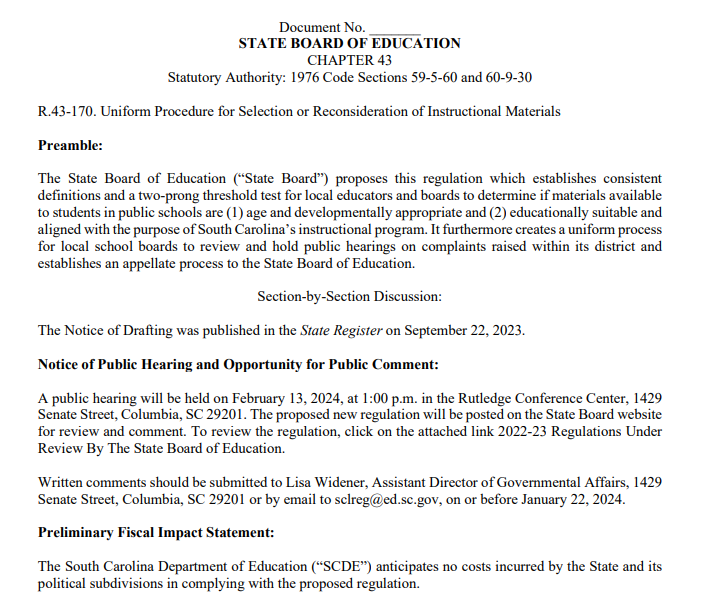What Nevada’s Education Savings Accounts Mean For South Carolina Families

Jonathan Butcher
South Carolina families and parents around the country have reason to hope after the Nevada Supreme Court’s recent ruling. The Court ruled that the accounts do not violate the state Constitution’s “Blaine Amendment,” a provision found in 38 state constitutions that prohibits using public money for private religious purposes.
With an account, the state deposits a portion of a child’s funds from the education funding formula in a private account that parents use to buy educational products and services for their children. Today, parents in five states—Arizona, Florida, Mississippi, Tennessee, and Nevada—have access to the accounts. Families can pay for multiple learning experiences simultaneously and customize their child’s education with personal tutors, online classes, and private schools, to name a few possible uses.
In Nevada, the American Civil Liberties Union filed a lawsuit challenging Nevada’s accounts under that state’s Blaine Amendment. The lawsuit – aimed at preventing parents from making decisions in the best interest of their child – stalled the rollout of Nevada’s accounts. State Blaine amendments have an ignominious history (rooted in U.S. Sen. James Blaine’s attempt in the late 19th Century to force children from Catholic families to attend schools that taught largely Protestant doctrine), and present-day teacher unions often utilize the provisions to force all families to send their children to public schools.
Meanwhile, some 2,500 Arizona children are using education savings accounts, along with 4,000 Florida students with special needs and more than 400 Mississippi children with special needs. Families like Amanda and Michael Howard’s in Arizona are using accounts to pay for speech therapy services and private school tuition—just one example of how families can use the accounts to meet the unique needs of their children.
South Carolina students should have the same access to quality learning options as children in the five states where lawmakers have enacted the accounts. Nevada’s ruling marks the second state’s highest court that ruled education savings accounts constitutional. In 2014, the Arizona Supreme Court allowed the accounts to stand after the state teacher union sued to stop children from using the accounts. These rulings help chart a course for South Carolina lawmakers to bring more educational opportunities to state families (South Carolina’s constitution contains Blaine Amendment language, albeit less restrictive than Nevada’s provisions).
In the Nevada Supreme Court opinion, Justice James W. Hardesty emphasized that parents become contractors for their child’s education when the state deposits money in a student’s account. Justice Hardesty wrote,
“Once the public funds are deposited into an education savings account, the funds are no longer ‘public funds’ but are instead the private funds of the individual parent who established the account. The parent decides where to spend that money for the child’s education and may choose from a variety of participating entities, including religious and non-religious schools. Any decision by the parent to use the funds in his or her account to pay tuition at a religious school does not involve the use of ‘public funds.’”
This means the accounts belong to families and their children, their use left to families’ discretion to help students succeed. More from Justice Hardesty on this critical issue:
“That the funds may be used by the parents only for authorized educational expenses does not alter the fact that the funds belong to the parents. And, though the funds may revert back to the State under certain circumstances, we nonetheless conclude that, during the time the funds are in the education savings accounts, they belong to the parents and are not ‘public funds.'”
Unfortunately, the Nevada court also ruled that state-specific constraints on education funding requirements mean that lawmakers must find a new funding source. These rules are unique to Nevada’s funding formula, and lawmakers should act quickly in the next legislation session (or before) to adjust state law accordingly. The section of Nevada’s ruling that discusses funding does not prevent other state lawmakers from enacting the accounts.
Meanwhile, Nevada’s Supreme Court ruling made the state the second after Arizona to find that education savings accounts are different from other forms of parental choice in education. The Blaine Amendment provisions that have derailed or stalled other learning opportunities are not blocking the accounts—excellent news for lawmakers and families around the U.S.




